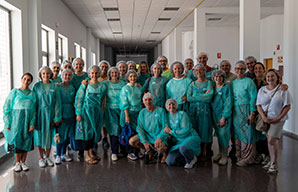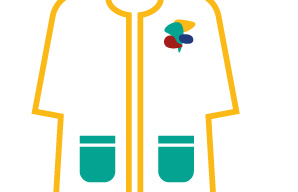A new drug get better survival in breast cancer with low HER2
A research team from the Hospital Clínic-IDIBAPS, the Catalan Institute of Oncology (ICO) and the Vall d’Hebron Institute of Oncology (VHIO) has participated in an international study that demonstrates the efficacy of a new drug for metastatic breast cancer with low expression of HER2, the protein found on the outside of tumor cells. This treatment, based on the drug trastuzumab deruxtecan, manages to double survival without disease progression in patients with this type of tumor, compared to traditional chemotherapy treatments.
Breast cancer is the most common tumor in women worldwide, with 2.3 million people affected and 571,000 deaths per year. Among the different subtypes of this disease, HER2 negative breast cancers account for 70% of all tumors.
The study, published in the New England Journal of Medicine (NEJM), concludes that the use of trastuzumab deruxtecan, a combination of a targeted therapy with chemotherapy, demonstrates a significant clinical benefit in patients with metastatic breast cancer with low expression of HER2 ( HER2-low) compared to the usual treatments. The trial involved 557 patients, of which about 90% had a HR-positive tumor and 10% had a HR-negative tumor. Progression-free survival was almost 10 months when trastuzumab deruxtecan was used and 5.1 months with standard chemotherapy. Median survival was 23.4 months compared to 17 months for the same comparison.
“The results obtained are statistically significant, clinically very relevant and with very manageable adverse effects. This treatment will soon become a standard, and we hope that it will not take long for it to be incorporated into the public system once it is approved by the European Medicines Agency and the Spanish Medicines and Health Products Agency” Miguel Gil, oncologist and head of the Medical Oncology Service of the ICO l’Hospitalet.
Font: Hospital Vall d’Hebron y New England Journal of Medicine








